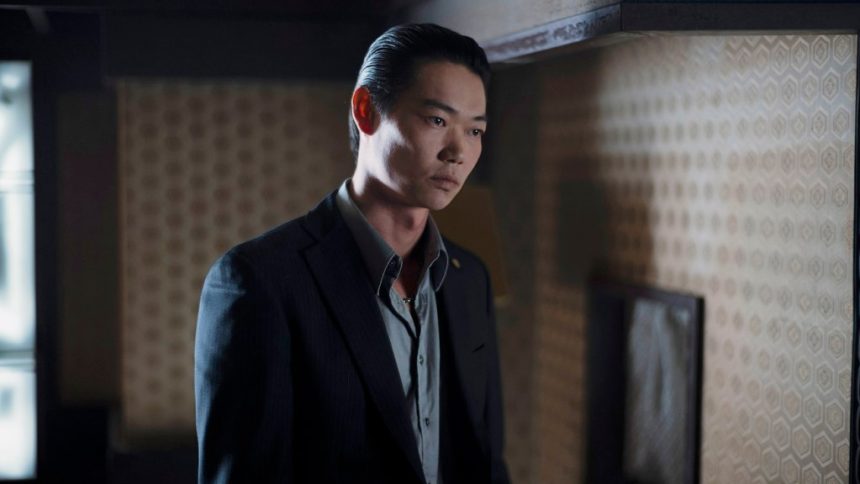[This story contains spoilers from the season two finale of Tokyo Vice.]
Many heroes brought down ruthless yakuza crime lord Shinzo Tozawa (Ayumi Tanida) in the season two finale of Tokyo Vice.
But for many faithful fans of the Japan-set and American-produced crime drama on Max, watching Akiro Sato (played by Show Kasamatsu), the young resilient yakuza member of the Chihara-Kai clan, deliver proof of Tozawa’s treachery to the oyabuns of various clans was a greatly satisfying ending to the 10 episodes that have been soaked with violence, honor, dishonor, loyalty and betrayal.
And of all the yakuza portrayed in the series about the Japanese organized crime world, Sato was the one member who sought quiet and peace, in his own way.
Tokyo Vice fandom pages indicate that Kasamatsu’s portrayal of Sato leaps off of the screen, similar to the series’ main star Ansel Elgort, who plays real-life American journalist Jake Adelstein, who moved to Japan in the ‘90s to cover the world of the yakuza.
The Hollywood Reporter recently caught up with Kasamatsu in Japan via Zoom to discuss how he approached playing Sato, his friendship with Elgort’s character and his future in the Hollywood industry.
***
How would you say Sato grew the most? He had many struggles in season two, from trying to protect his younger brother from the conniving Chihara-Kai high-ranking Naoki Hayama (Yosuke Kubozuka) to trying to protect his oyabun, Hitoshi Ishida (Shun Sugata), from being assassinated by their yakuza archenemy, Shinzo Tozawa (Ayumi Tanida).
I think with Samantha (Rachel Keller) there is a weird connection. That connection is so helpful for Sato growing up. And there were also other dangers, and other people seemed dangerous. Is it so helpful for improving Sato? I don’t think so. Because I feel safe when I feel connection with someone. It is like having power and being brave and something like that. So, when I am with Samantha, she always trusts me, and I get power from her. And I get power from my oyabun Hitoshi Ishida, who is played by Shun Sugata-San.
Sugata-San is so, so scary! He’s so scary on the set and also off the set, but he is a legend in Japan, and he trusted me every time. Not everybody, but he trusted me! So, I liked acting with him and I felt so comfortable. And of course, I trusted him too. In that relationship, I got all the power.
Would you say that Sugata-San was like a father figure to Sato, is that a fair assessment?
Yes, you are correct. Actually, I don’t have my father in my daily life, and Sato doesn’t have his father and his family is not in a good relationship. So, it’s the same between Sato and I. Ishida, my boss, gave [a father figure] to me and to Sato.
What about Sato having to worry about his younger brother, Kaito (Atomu Mizuishi), and Hayama constantly trying to use him and put him in harm’s way? What impact did the need to save your younger brother have on your character?
That is so interesting. Of course, I like him, he is so cute on the set. But I didn’t know his moves, or how he was moving. It’s so difficult to answer how that helped improve me as Sato. I had to protect other people, too. The situation was helpful, but I didn’t think so at the time.
In another place or time, do you feel that Jake Adelstein (Ansel Elgort) and Sato could have been friends, or is that just impossible because of the two worlds they live in? Is there a mutual respect for one another?
I think there is a weird relationship. I don’t trust him, but he has good information for me. And he has real power, he is brave. Ansel and Jake, we are in a [different kind of] relationship, not only friends, not only as co-workers. He is a special person for me.
Show Kasamatsu in Tokyo Vice.
Courtesy of Max
Would Sato protect Jake if he stepped out of line in the world of the yakuza?
Actually, Sato is not always safe in his yakuza family, Chihara-Kai. And even in his daily life, everything is not safe, not comfortable. But he always spends time trying to not fight, to not break anything. Because when he was younger, he broke everything and he regrets it. So, he must protect [so many people now]. He wants to protect his family, but he’s not sure if they want him to protect them. Everything is so complex. Sato wants peace because he doesn’t have peace. So, Sato wants to be peaceful people.
How did you prepare for the intense fight scene in the bathhouse, where Sato finally confronts Hayama for trying to kill his brother and falsely accusing Sato of being a traitor to his clan? Was this fight scene more intense than in season one, where you saved your oyabun’s life after the Chihara-Kai headquarters was ambushed by Tozawa’s assassins?
The season one fighting scene was so sensitive. It was the first time killing someone for Sato, and I didn’t want Sato to seem stylish or look cool. But I wanted to be detailed and sensitive. But in season two, Sato is so frustrated and wanted to kill his Chihara-Kai brother, Hayama, all the time. And he doesn’t have to think about an energy source, because he just wants to kill Hayama. So, he just releases the power.
The finale ended with Sato becoming the oyabun of the Chihara-Kai yakuza clan. Where do you see the Sato character in five to 10 years?
I don’t know, but he will be struggling every time.
Might we see a season three with Sato in it?
Do I want season three? Actually, I don’t (laughs). I want to play Sato, but actually I am wondering if Tokyo Vice fans want a season three. I am wondering. I am afraid (laughs). If Max is okay with it, of course I will do Sato in season three, four, five.
What’s in the future for you? Will you do your next project in Japan, or would you like to do some projects in the U.S.?
When season one aired, I got a lot of offers, but I was busy with work in Japan. But right now, I am keeping my schedule open and I’m waiting to receive good work. So, I want international work.
Tokyo Vice is now streaming season two on Max.











